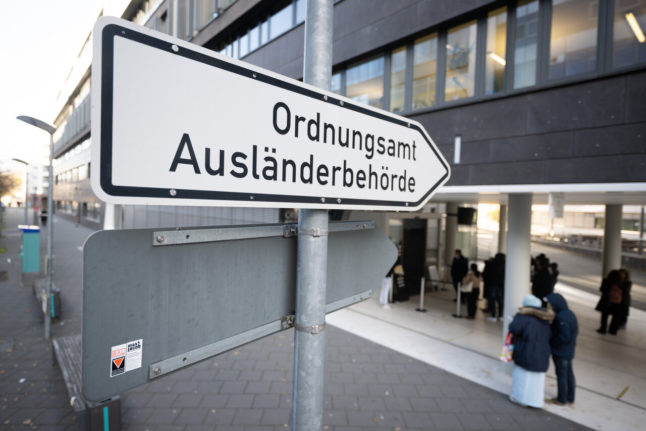In response to a previous story by The Local Germany about problems at Stuttgart’s immigration offices, a group of over 40 international students and workers approached us with their stories of how delays were severely impacting their lives.
Some claimed their work contracts were cancelled due to a lack of response from the Stuttgart Ausländerbehörde (foreigner authority) despite a system having been put in place for new appointments.
Others said they had been prevented from working, accepting new jobs, or even leaving the country during family crises.
READ MORE: Stuttgart’s immigration queues are gone, but problems persist
‘I’m jobless, no money’
A common theme among the stories was that a lack of response from the Ausländerbehörde, despite the new emergency appointments, had either threatened or cost them their jobs.
Aashin, an Engineering Consultant stated: “I’ve lost my current job; I have an offer for another job but cannot join due to (the lack of a Zusatzblatt (a form that lists visa conditions).
“I’ve been waiting for two months now. I’m jobless, no money.”
Viknesh, a atudent assistant at a university in the region told The Local: “Due to this situation, I can’t extend my job contract, which is my only source of income to sustain my daily life here.
“The other major problem is I can’t even apply to other companies due to the requirement of a residence permit.”

Some even blamed bureaucratic mistakes for their predicament. Arpan, a Business Analyst who has lived in Stuttgart since 2022 claimed: “I have been waiting for eight months. I applied for an appointment to get a work visa in May, but they sent me a temporary student visa.
“I was working with that student visa, but now my 120 days is also about to end, and my visa expires on the November 18th. I am getting terminated from my job then because of no new visa.”
‘A difficult situation’
Others told The Local that the lack of response had made them nervous about the prospect of travelling, sometimes in response to a family emergency.
“I had to travel to India in November for an emergency, because my wife’s mother is going to have a major operation”, said Manjeet, a design engineer who arrived from India earlier this year.
“We don’t have visas and no answer on an emergency appointment. We are in a difficult situation now due to Ausländerbehörde Stuttgart.”
Ankita, an IT specialist for one of Stuttgart’s largest automotive companies, even had her impending wedding in India threatened: “I have my wedding in January, so I have to travel back in December, but if I don’t have my blue card, I won’t be able to come back. It’s been four months,” she said.
The stress caused by the delays was also claimed as a catalyst for health problems and marital stress.
Prateek, an Indian software developer living in Stuttgart since 2019 wrote: “I’ve waited for an answer for over 13 months. Due to constant stress. I am now a blood pressure patient and have to take medication.”
A woman married to a German citizen, who wished to remain anonymous, claimed to have waited for her permanent residency permit since March 2022. She wrote: “I’ve been quarrelling with my German husband about leaving Germany.”
“There is stress in my marriage, I am psychologically affected, and I feel unwelcome in Germany.”
A temporary solution
When confronted in the national media by images of the long queues, Stuttgart’s city authorities announced emergency appointments at the Ausländerbehörde in early October. These were for just those whose with work permits that were imminently expiring.
When contacted by The Local shortly afterwards, regarding measures to handle other queries, a spokesman for the city directed those with concerns to a statement by the head of Stuttgart’s Ordnungsamt (Office for Public Order), Susanne Scherz.
“The situation is a great burden for our customers and also our employees. Online appointment scheduling for emergencies is an important step for better customer management.
The statement read: “It reduces the waiting time on site. At the same time, we are working on improving customer management and information.”
She continued: “We hope this will provide relief in this area and ask that you refrain from making repeated inquiries about applications that have already been submitted.
“This means we can concentrate our staff capacity on processing the numerous application processes.”
When contacted again recently, the same spokesman told The Local there were no new updates.
Despite the new appointments, many are still frustrated by the lack of direction and communication from the city.
Ozan, a mechanical engineer, originally from Turkey, summed up the situation: “I want to apply for a family reunion, but I’m unable to get my own visa, and the situation looks grim.”
“There is nobody that can help guide you through these processes, so you are more or less on your own and have to handle all the pressure and stress by yourself.”
Have you experienced ongoing issues with Stuttgart’s Ausländerbehörde? Contact us with your story.



 Please whitelist us to continue reading.
Please whitelist us to continue reading.
Member comments